From Malcolm X to Keith Ellison, black Muslims have played an important role in fighting for the rights of the wider community.
The unrest that struck the United States (US) after the death of George Floyd, an African-American man who suffocated by a white police officer in Minneapolis, made black rights activists once again a focus.
Young men and women took to the streets across the United States in rousing protests, clashing with police who sprayed pepper spray, rubber bullets, and baton beatings.
There is also a rich history of black American Muslims who are at the forefront of fight against injustice experienced by non-white citizens in the world’s largest economy.
Also Read: 77 Years Since Nakba, Palestinian Population Grows Tenfold
“We have a long history of dealing with violence by extremist groups such as the Ku Klux Klan,” said Imam Mahdi Bray, National Director of the American Muslim Alliance and lifelong civil rights activist.
“When many people think about terrorism, they think of 9/11. But for me terrorism occurred that day in 1956 when my grandfather’s house was bombed by the Klan, “he said.
The Bray family lives in northern Virginia where his grandfather, Wright Gray Junior, campaigned to register black voters and worked with famous activist and icon, Dr. Martin Luther King Jr.
Many years have passed since then, and by that time, America has seen the black president in power, as well as senators, lawyers and mayors.
Also Read: Indonesia Must Do More Than Evacuate, Gaza Needs Us to Act Now
But it is clear that discrimination against people from the color has not changed, said Bray, a major antiwar activist after the US-led invasion of Iraq.
“What happened in the US is what has been happening for years. We suffer from racism and systemic violence.
“What happened to George Floyd has happened to many black African-American men who basically suffered death and deadly violence by law enforcement,” he told TRT World in an interview.
Over the years, many prominent Black Muslims have emerged in the civil rights movement. People like Malcom X and Muhammad Ali are the names of them.
Also Read: The Recitation of Surah Al-Isra from Jakarta for Palestine
Mentioning everyone in one article is impossible. Some of them have a controversial history or it is still difficult to confirm whether they embraced Islam, but their lives have proven to be a source of inspiration for Muslims.
In the current situation, black Muslims have a very difficult task.
Keith Ellison
Ellison (56) is a leading public prosecutor in Minnesota, the state where Floyd was murdered. As Attorney General, he will lead an investigation of police officers and has promised to “hold everyone responsible.”
Also Read: The Importance of Environmental Awareness in Da’wah
As a criminal defense attorney, he converted to Islam as a 19-year-old student when he was actively involved in highlighting police brutality against black people.
Ellison had firsthand experience of police brutality, something that encouraged him to take an active role in the civil rights movement.
“When he was 4 years old, he hid under his bed when a National Guard troop carrier passed through his neighborhood in 1968, amid the riots that occurred after the assassination of Martin Luther King Jr. He grew up in the Coleman Young era in the city. The first black mayor, “said Mother Jones magazine.
In 1989, he formed a group called the Coalition for Police Accountability, which published a bulletin detailing police brutality.
Also Read: Interfaith Dialogue and the Middle East Conflict
He was the first Muslim elected to the US Congress in 2006, taking his oath using Al-Quran, a move that angered some white politicians.
Marcus Garvey
Imam Mahdi Bray is a former Baptist Christian. He converted to Islam in the mid 1960s.
It was a time when black Americans began to become interested in the political transition that occurred in the Middle East and Africa, such as in countries like Algeria that gained independence from the French colonial government in 1962.
Also Read: Israel’s Underground Prison, Where Hamas and Hezbollah Fighters Are Held in Extreme Conditions
“Culturally, Black youth like me are experiencing what we call the Black identity movement and so we look towards Africa and we see Islam is a religion that comes from there,” he explained.
Pan-Africanism blows and the rebellion against Apartheid in South Africa is a call for African-Americans.
“The struggle for dignity in places like South Africa is closely related to the experience of African-Americans who experience their own aparthied system,” Bray said.
However, a few decades before converts took inspiration from Africa, there was Marcus Garvey, founder of the Universal Negro Improvement Association (UNIA), who began “a campaign back to Africa.”
Born in Jamaica, Garvey moved to the United States at the age of 28 in 1917. This coincided with racial riots in St. East Louis, events that created an environment of racial fear among black people.
“With the help of students like my father, Garvey, from his headquarters in Harlem City, New York, raising the flag of the purity of the black race and urging the Negro masses to return to their ancestral homeland in Africa – a reason that makes Garvey the most man controversial in the world, “wrote Malcom X on the first page of the first chapter of his autobiography.
As a strong supporter of black nationalism and black independence, Garvey faced persecution at the hands of the FBI in cases of alleged fraud through letters relating to the promotion of the Black Steamship Line (BSL).
Garvey’s “black religion” was in harmony with many Muslims and influenced the leaders of the Nation of Islam.
Also Read: Exclusive Interview with Prof. El-Awaisi: Knowledge, the Key to the Liberation of Al-Aqsa Mosque
Although he is officially a Catholic, his reluctance to openly express his beliefs remains a mystery, writes Professor Samory Rashid of Indiana State University, in his book, “Black Muslims in the US”.
“However, UNIA’s motto about ‘One God, one goal, one destiny’ has a special appeal for Muslims who may have filled their ranks in the thousands,” Rashid wrote.
He was expelled from the US in 1927 and died in England in 1940. His body was moved to Jamaica where he became the nation’s first national hero.
Garvey’s philosophy, which centered on the return of black people to their original homeland, helped lead to the creation of the Rastafari religion.
Also Read: Imaam Yakhsyallah: Nine Steps to Liberate Al-Aqsa and Palestine
Rastafarian believes that Haile Selassie I, the Emperor of Ethiopia who ruled between 1930 and 1974, was a God and that he would facilitate the return of the black community to Africa.
Among Garvey’s followers was a man named Elijah Muhammad.
The Nation of Islam (NOI)
No brief history of Black Muslims in the US would be complete without mentioning NOI.
Also Read: A Year of Al-Aqsa Flood Opens World’s Eyes
NOI was founded by Wallace Fard Muhammad in 1930, but the lightning rod was Elijah Muhammad, a controversial Muslim leader whose teachings diverged from mainstream Islam.
Born in 1897 in Georgia as Elijah Poole, he witnessed as a boy the lynching of Albert Hamilton, an African-American. That incident had a profound impact on him.
Elijah Muhammad took over the leadership of NOI from NOI founder, Fard.
“The Nation of Islam does not adopt orthodox Islam or as some would say Sunni Islam,” Mahdi Bray said.
“People like Muhammad Ali helped build the bridge, then rejected some of the religious teachings given by Elijah Muhammad.”
However, the group supports black nationalism and has broad appeal.
“As a sheikh from Saudi Arabia used to say that maybe they don’t pray correctly, but they pray in the right direction,” Bray said.
The most famous NOI spokesperson is Malcom X.
Bliss X
Malcolm little was born in 1925 with a skin color that was considered lighter than his siblings.
This is something that makes his father like him more than other children because “he unconsciously suffered so much by brainwashing blacks from Negroes that he tends to prefer lighter children.”
The discrimination he faced as a child shaped his views later on when, unlike King, he firmly opposed reconciliation with whites – at least for most of his life.
At school, he excelled but was told by a teacher that he should consider a “realistic” career as a carpenter rather than dreaming of being a lawyer.
Malcolm replaced Little in his name with the variable X which denies white domination. As a young man, he spent several years in prison, a time where he converted to Islam and after being released he became an active member of NOI.
He is known to have provided many intellectual weapons for the Black Power movement.
After developing differences with Elijah Muhammad, he left NOI in 1964 and traveled to Saudi Arabia to make the pilgrimage. He changed his name to el-Hajj Malik el-Shabazz.
Malcolm X was shot dead in 1965 by several members of the NOI. (AT/RE1)
Source: TRT World
Mi’raj News Agency (MINA)






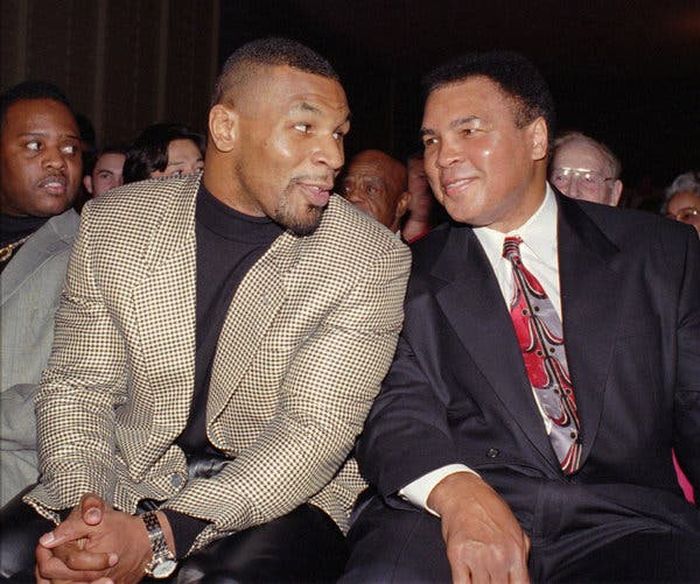



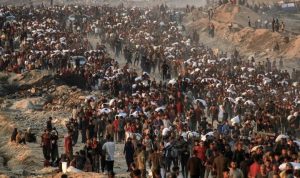
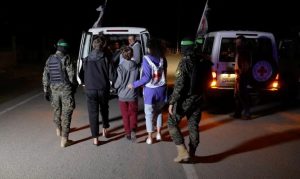
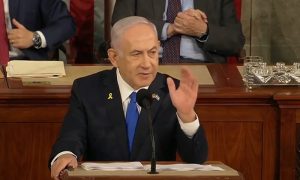



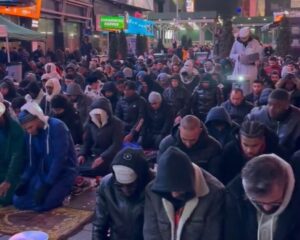

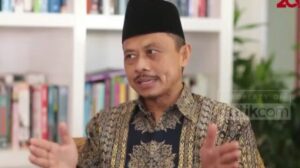
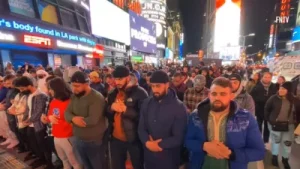
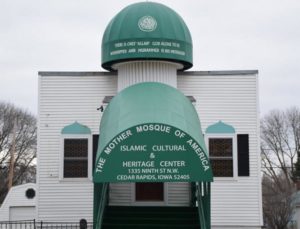
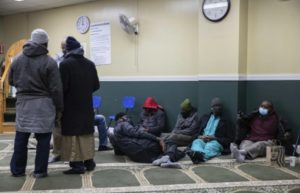







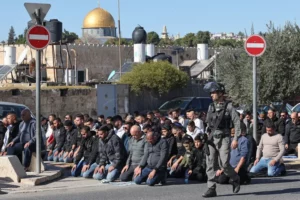

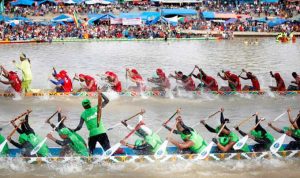

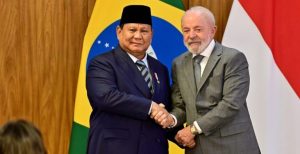




 Mina Indonesia
Mina Indonesia Mina Arabic
Mina Arabic